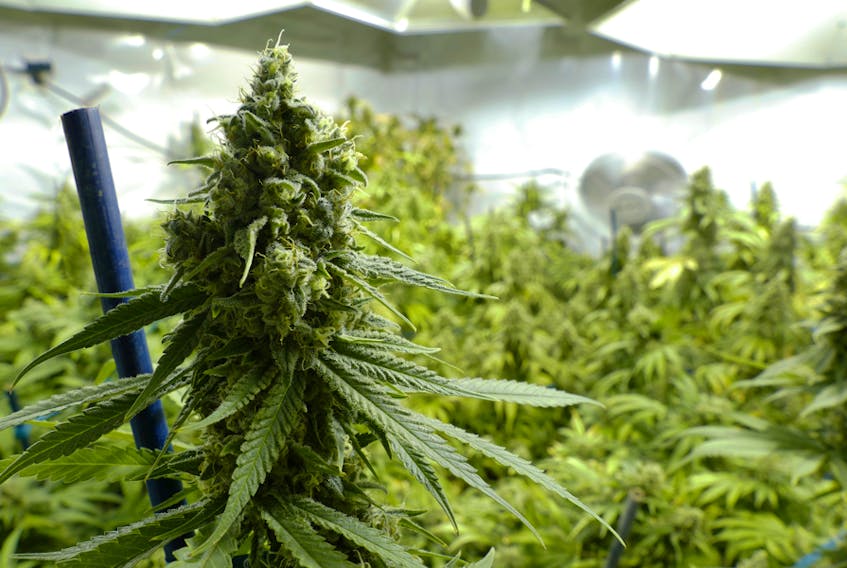Only a year after legalizing it, we’re already growing more pot than we can smoke.
The latest reports from Health Canada and Statistics Canada show that production is already passing retail demand for marijuana.
And with all the private capital that has rushed to grow legal cannabis, new capacity is still coming down the pipes.
An Atlantic Provinces Economic Council survey found that another 100,000 kilograms of growing capacity will come on stream by the end of 2020.
The 20 licensed Atlantic Canadian growers are currently producing 200,000 kilograms annually.
“We’re heading toward a rationalization,” said Fred Bergman, senior policy analyst for the council.
As early as May of this year, Health Canada changed its rules to slow the growth of marijuana production – stating that any further new license applications will have to come from companies with their production infrastructure already built.
“So that’s essentially a cap,” said Bergman.
“Because you’re not going to be able to go the bank and borrow millions to build the facility before even applying for the license.”
That cap, however, didn’t apply to applications already received by Health Canada.
With supply outpacing the demand that has grown so far for legally retailed recreational or medicinal cannabis, the push is on to cut more of the black market’s grass.
A Nova Scotia Liquor Corporation telephone survey earlier this year found that about 40 per cent of the people buying pot in this province were getting it legally – i.e., from them.
Another 40 per cent of those surveyed bought marijuana from both the black market and the NSLC. Then there were 20 per cent buying solely on the black market.
“If we know 20 per cent are buying exclusively from the black market, and 40 per cent are buying both from us and the illicit market then I would say we probably have around 40 per cent more capture on the table,” said Dave DiPersio, senior vice-president of corporate services for the NSLC.
“So we’re competing.”
But the numbers quoted by DiPersio in the NSLC survey, which hasn’t been released in full, are for the numbers of consumers buying pot legally not the amount of product bought legally. According to data from Statistics Canada, Canadians bought 80 per cent of their pot on the black market.
That’s because people who smoke a lot of pot tend to buy in bulk.
The average price of an illegal gram in Canada is $5.63 according to Statistics Canada, while it’s over $10 for the legal stuff.
Due to the high levels of security and testing required of legal growers, legal producers report average production costs of $4.68 a gram in 2018. That means producers have a long row to hoe if they want to compete on price point to consumers who can save about $150 an ounce buying from the black market.
Statistics Canada doesn’t have estimates on how much it costs to put a couple seeds in pots in your backyard.
And yet Khurram Malik isn’t worried.
“I’ve been forecasting for years that late 2020 supply will outstrip demand,” said the chief executive officer of Biome Grow, which owns growing facilities in Antigonish and will soon enter production at its facilities in Newfoundland and Ontario.
“The problem is there is too much low quality stuff out there that you can’t legitimately sell.”
Through its Antigonish County-based subsidiary Highland Grow, Malik’s company is producing higher quality marijuana with stronger doses of the active chemical THC.
The company is finding that Atlantic Canadians want stronger pot than those in other parts of Canada and there isn’t an oversupply of that on the horizon.
The federal government is promising to announce a plan to legalize the production and sale of edibles in the coming months and that, according to Malik, will provide a market for the lower quality pot currently stockpiling.
Ultimately, his company’s plan is to make most of its money exporting marijuana to overseas markets as legalization creeps around the world and regulators in foreign countries are attracted to the high quality and regulation around marijuana production in Canada.
RELATED









